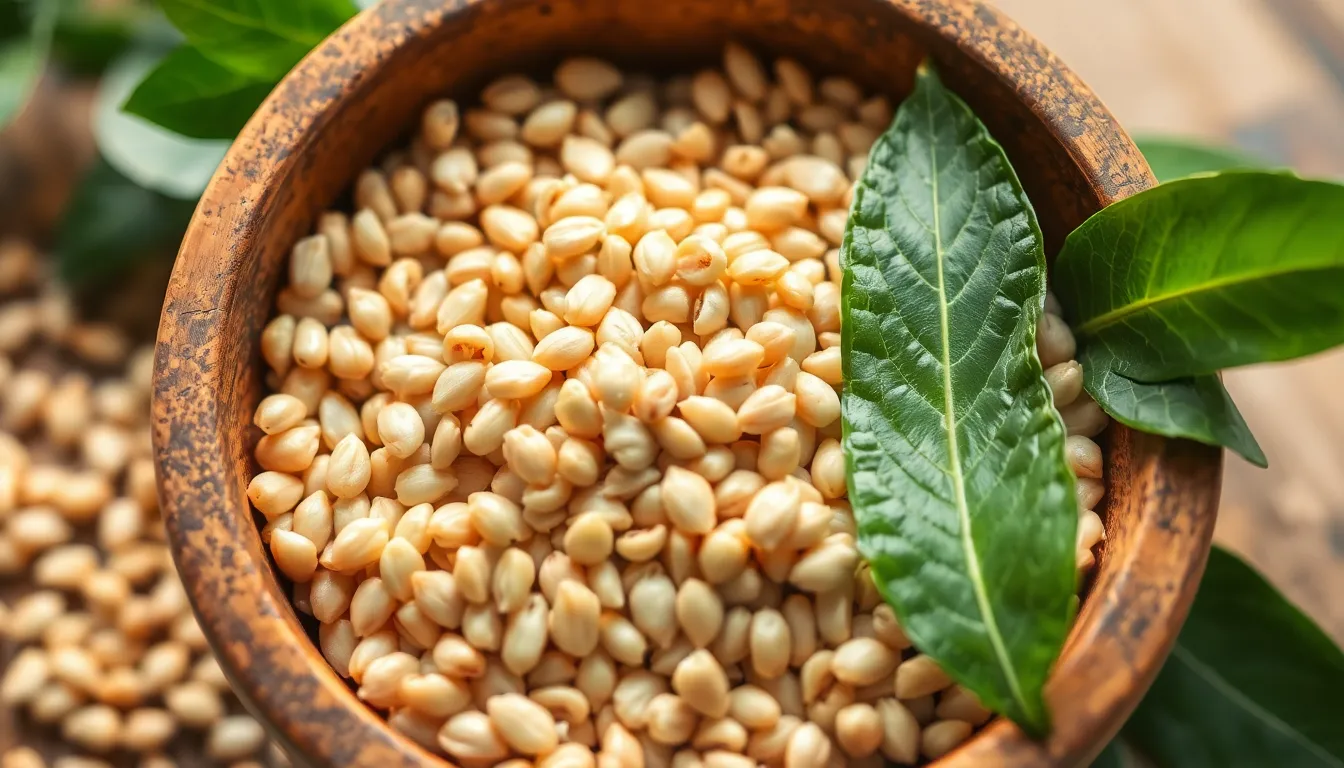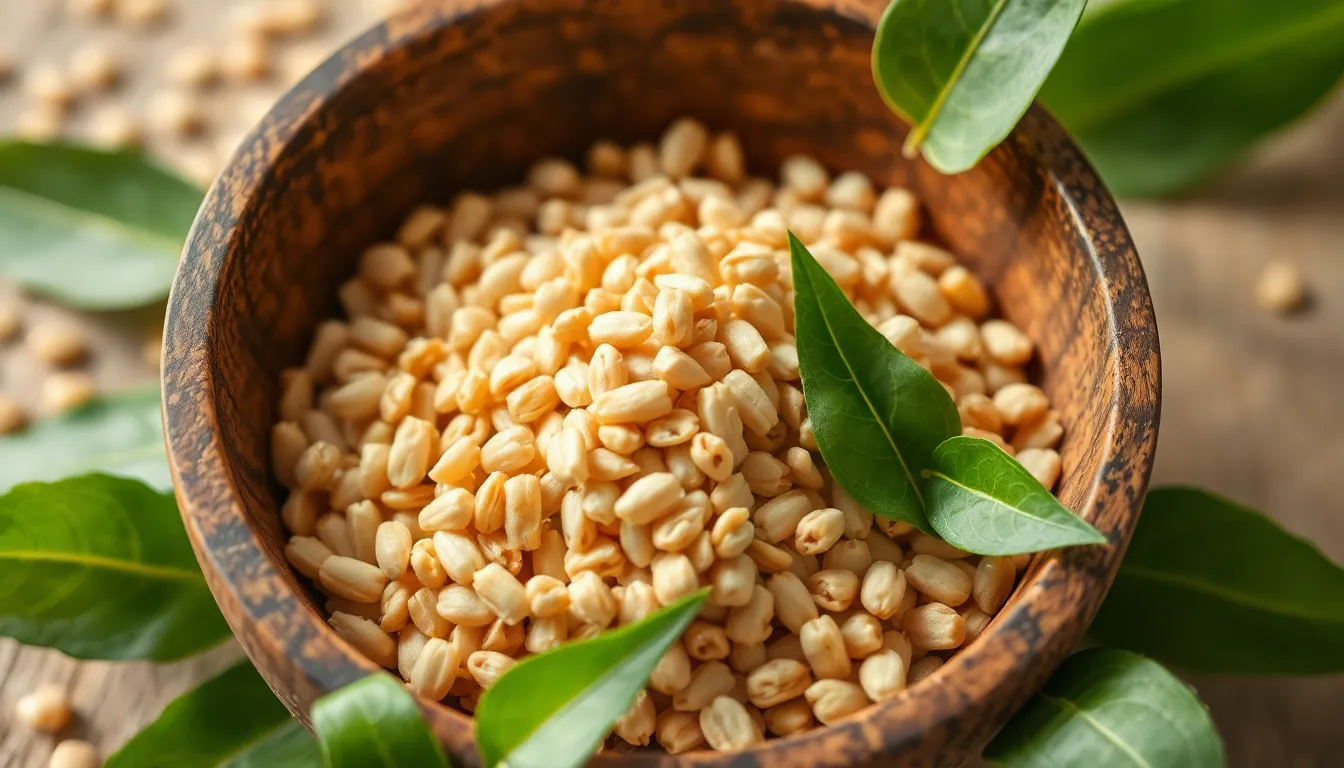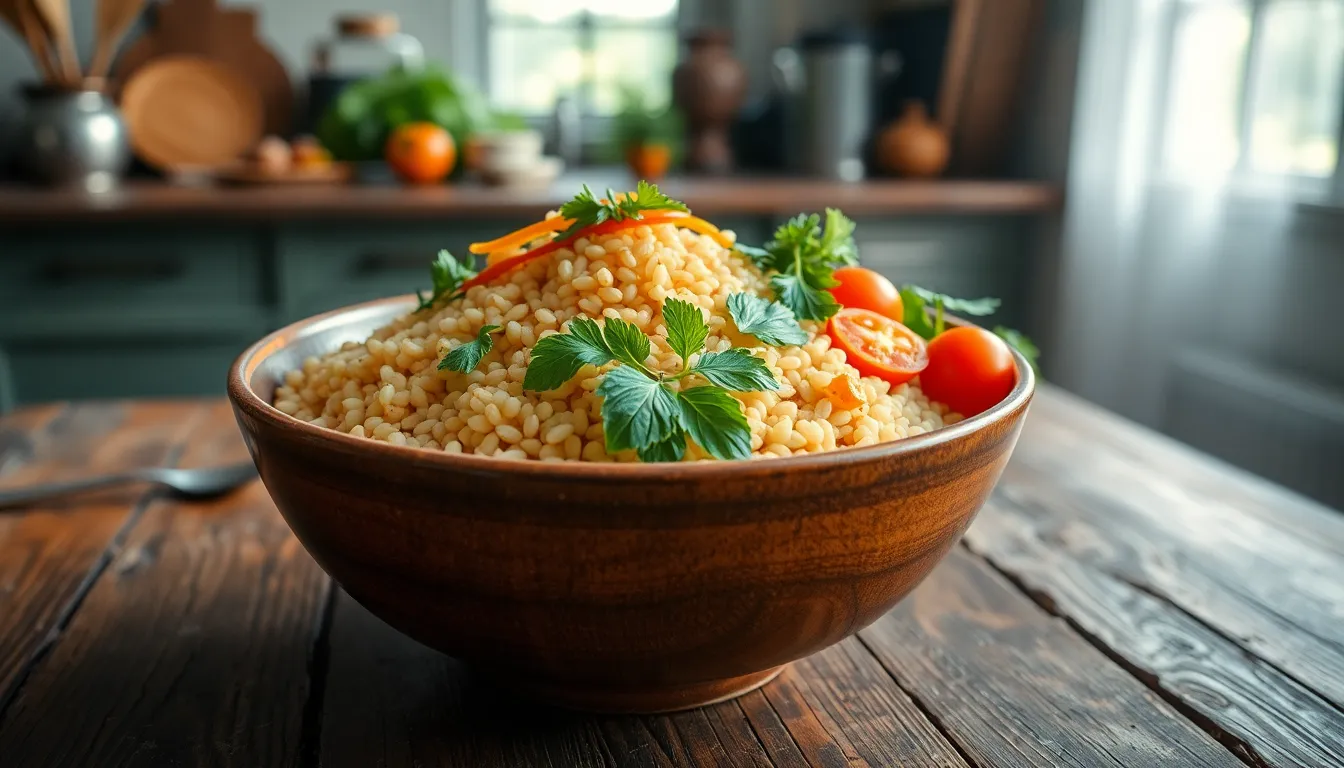When it comes to superfoods, kayudapu might not be the first name that springs to mind, but this humble grain is making waves in the nutrition world. Packed with nutrients, it’s like the underdog in a sports movie—ready to surprise everyone with its hidden talents. But the burning question remains: Is kayudapu really rich in iron, or is it just another health trend trying to ride the coattails of quinoa?
Table of Contents
ToggleOverview of Kayudapu
Kayudapu, a grain enjoyed by various cultures, captures interest due to its nutritional profile. This superfood features a diverse range of essential nutrients that supports a healthy diet. Iron content particularly garners attention, raising questions about its richness in this crucial mineral.
Nutrient analysis reveals that kayudapu contains a notable amount of iron. In fact, studies indicate that per 100 grams, it provides around 4.5 mg of iron, making it a viable option for individuals seeking to increase their iron intake. Many health enthusiasts consider this grain a valuable addition to diets, especially for those at risk of iron deficiency.
Beyond iron, kayudapu offers other beneficial components. It boasts high levels of protein, fiber, and vitamins, promoting overall health. The grain showcases its versatility in various culinary settings, allowing for easy incorporation into meals.
Different preparations enhance its appeal, from porridge to salads, appealing to diverse palates. Understanding the nutritional value of kayudapu supports the decision to include it in daily meals. As interest in healthy eating continues to rise, this superfood may emerge as a staple for many looking to boost their nutrient intake.
Nutritional Profile of Kayudapu


Kayudapu stands out as a nutrient-dense grain packed with essential vitamins and minerals. Its nutritional profile supports overall health and wellness.
Key Minerals Found in Kayudapu
Iron represents one of the most significant minerals in kayudapu, containing approximately 4.5 mg per 100 grams. Other important minerals include magnesium, phosphorus, and zinc. Magnesium plays a crucial role in muscle and nerve function. Phosphorus contributes to bone health and energy production. Zinc is vital for immune function and metabolism, ensuring balanced health. The mineral diversity found in kayudapu supports various bodily functions, making it a valuable addition to a balanced diet.
Vitamins Present in Kayudapu
Kayudapu contains a range of vitamins that promote health. Notably, it includes B vitamins, such as B1 (thiamine), B3 (niacin), and B6 (pyridoxine). Thiamine aids in energy metabolism, while niacin supports skin health and digestion. Additionally, vitamin B6 is essential for brain function and the production of neurotransmitters. Alongside these, the presence of vitamin E offers antioxidant properties that help prevent cell damage. The vitamin profile in kayudapu enhances its appeal as a comprehensive nutritional source.
Iron Content in Kayudapu
Kayudapu stands out for its iron content, containing about 4.5 mg of iron per 100 grams. This amount makes it a significant option for those aiming to enhance their dietary iron intake.
Comparison with Other Iron Sources
When compared to common iron sources, kayudapu offers a competitive nutrient profile. Spinach, for instance, features around 2.7 mg of iron per 100 grams, which is lower than kayudapu. Red meat contains about 2.7 mg to 3.5 mg of iron per 100 grams, making it rich in heme iron, which is more easily absorbed. Legumes, such as lentils, provide approximately 3.3 mg of iron per 100 grams, positioning kayudapu favorably. This comparison highlights that kayudapu may serve as a viable alternative for individuals seeking plant-based iron sources without animal products.
Factors Affecting Iron Absorption
Several factors influence how well the body absorbs iron from kayudapu and other food sources. Vitamin C significantly boosts iron absorption, enhancing its bioavailability when consumed together. On the other hand, calcium competes with iron, potentially inhibiting absorption. Phytates, found in various grains and legumes, may also limit the availability of iron. Cooking methods can play a role; soaking and sprouting can reduce phytate levels and improve absorption rates. Understanding these factors helps individuals optimize their iron intake from kayudapu and other foods.
Health Benefits of Iron-Rich Foods
Iron-rich foods like kayudapu promote improved energy levels. Individuals consuming adequate iron often report reduced fatigue and better overall vitality. Iron plays a crucial role in transporting oxygen throughout the body, enhancing physical performance and stamina.
In addition, iron deficiency can lead to anemia, characterized by weakness and pale skin. Consuming foods high in iron, such as kayudapu, helps combat this condition effectively. Regular intake supports the production of hemoglobin, which is essential for red blood cells.
Further benefits include supporting cognitive function. Sufficient iron levels are linked to improved concentration and memory. When the brain receives adequate oxygen, mental clarity and focus improve, leading to enhanced productivity.
Foods rich in iron also aid in immune system support. Iron contributes to the development of immune cells, helping the body fight infections. A strong immune system results in fewer illnesses and better overall health.
Including a variety of iron sources can increase daily intake. Combining foods like kayudapu with vitamin C-rich options—such as citrus fruits and bell peppers—boosts iron absorption. Consuming plant-based iron with these vitamins enhances bioavailability.
This grain’s versatility in cooking makes it easy to add to everyday meals. People can use it in salads, soups, or as a porridge base. Incorporating kayudapu into a balanced diet offers numerous health benefits beyond iron.
Given its nutrient density, kayudapu provides fiber, protein, and essential vitamins. These components contribute to a well-rounded diet, promoting overall wellness. Regular consumption supports various bodily functions, making kayudapu a valuable superfood.




